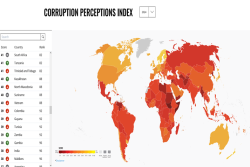Dear Editor,
I am compelled to ask the following given the much-hyped success of the housing Programme.
The Guyana government’s housing Programme may have unintentionally contributed to the growth of the rental housing market by not implementing strict regulations on how recipients of housing lots and subsidies utilize their properties. Without clear provisions requiring recipients to live in the homes they construct, the programme’s original goal of providing affordable housing to qualifying individuals could be diluted, paving the way for unintended outcomes.
One critical gap is the absence of a clause mandating that beneficiaries reside in the homes for a lifetime or restricting their ability to rent out or sell the property. Without this safeguard, recipients can treat subsidized housing as an investment opportunity rather than a solution to their housing needs. For instance, some recipients may opt to rent out the property to generate income, creating a loophole where government-supported housing ends up contributing to the rental market rather than providing stable homes for low-income families.
Additionally, the lack of a “buy-back” policy further exacerbates the issue. If a recipient cannot or chooses not to live in the house, there is no requirement for them to sell it back to the government at cost. This allows beneficiaries to sell these subsidized properties at market value, turning what was meant to be an affordable housing initiative into an avenue for personal financial gain. Such practices can fuel property speculation and drive up housing prices in the surrounding areas.
Compounding the problem is the absence of systems to verify that recipients remain the sole occupants of their homes. Without evidence-based monitoring, properties can be sublet, rented, or even transferred to others, undermining the programme’s intent to benefit those who meet its eligibility criteria. Over time, these gaps may allow subsidized housing to flow into the rental market, shifting the programme’s focus from addressing housing insecurity to facilitating private investments.
This situation raises important questions about the effectiveness of the government’s housing policies. By failing to enforce residency requirements and restrict property transfers, the programme inadvertently creates opportunities for recipients and investors to benefit financially, while the needs of low-income families remain unmet.
To realign the housing programme with its original purpose, the government could consider several measures. First, introducing a lifetime occupancy clause would ensure that beneficiaries live in the homes they build, preventing properties from being used for rental income. A buy-back provision could require recipients to sell the property back to the government at cost if they are unable to fulfill the residency obligation. Regular audits and monitoring could help verify compliance, while penalties for violations, such as fines or repossession, would discourage misuse of the programme.
By addressing these loopholes, the government can strengthen the integrity of its housing Programme, ensuring that it fulfills its mission of providing affordable housing to those who genuinely need it, rather than indirectly fueling the rental market.
Sincerely,
Keith Bernard








